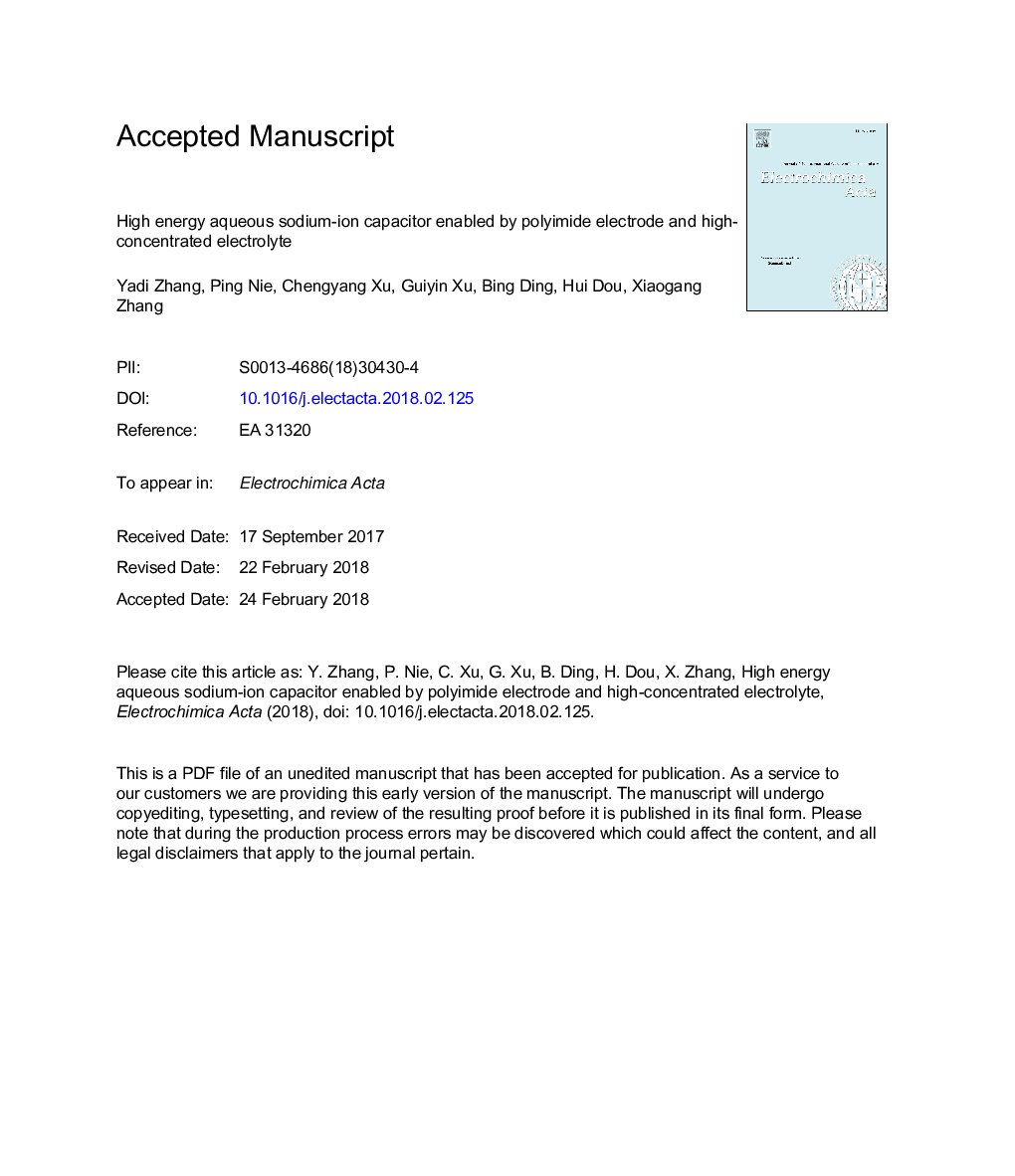| Article ID | Journal | Published Year | Pages | File Type |
|---|---|---|---|---|
| 6603862 | Electrochimica Acta | 2018 | 27 Pages |
Abstract
Given the safety and cost involved, aqueous electrolyte is an extremely attractive candidate for large-scale energy storage systems. However, limited electrochemical stability window of water (decomposition potential <1.23â¯V) usually confines the energy density of aqueous energy storage systems. Herein, an aqueous electrolyte based on NaClO4 solution with a high concentration of 17â¯m is demonstrated to enlarge the practical stability window to approximately 2.75â¯V, because the scarcity of free water molecules in high salt concentration contributes to their inactivity. An aqueous sodium-ion hybrid capacitor is assembled by using the electrolyte and could be operated at a large voltage of 2.0â¯V, in which aromatic polyimide (PI) is used as anode material and ultrahigh specific surface PI derived porous carbon microspheres as cathode. This enhanced electrochemical window of the aqueous electrolyte ensures that the sodium-ion capacitor delivers an energy density of 65.1â¯Wh kgâ1 with high power density and good cycle stability. Most importantly, compared to most used host materials with conventional intercalation mechanisms, fast reaction kinetics and structural insensitivity of PI to the ion radius are responsible for the excellent sodium storage properties.
Keywords
Related Topics
Physical Sciences and Engineering
Chemical Engineering
Chemical Engineering (General)
Authors
Yadi Zhang, Ping Nie, Chengyang Xu, Guiyin Xu, Bing Ding, Hui Dou, Xiaogang Zhang,
